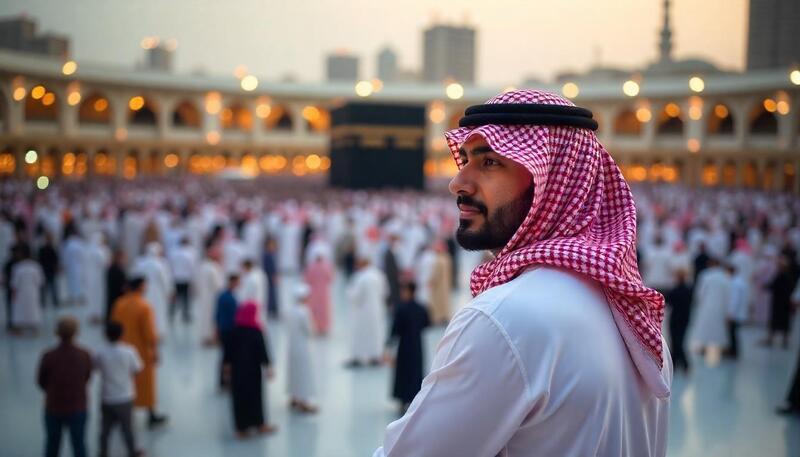Tuesday, May 27, 2025
Saudi Arabia’s Minister of Health, Fahad AlJalajel, has confirmed that public health conditions remain stable throughout the ongoing Hajj season. Despite the large influx of pilgrims from around the world, no significant health issues or outbreaks have been reported to date. This stability highlights the effectiveness of the country’s extensive health measures and preparedness plans for managing such a massive gathering.
The Ministry of Health has implemented rigorous protocols to ensure the safety and well-being of all pilgrims. These measures include comprehensive medical screenings, widespread vaccination campaigns, and the deployment of health teams at key entry points and pilgrimage sites. Continuous monitoring and rapid response systems have been instrumental in preventing any health emergencies, maintaining a secure environment during the holy event.
In addition to on-site medical support, public health authorities have also launched awareness initiatives to educate pilgrims about hygiene, heat precautions, and COVID-19 preventive measures. These combined efforts demonstrate Saudi Arabia’s commitment to safeguarding the health of millions attending Hajj, underscoring its capability to manage one of the world’s largest annual religious gatherings without health complications.
“We are pleased to announce that no epidemic cases have been detected so far and there is no risk for outbreak of diseases. The health and safety of pilgrims remain our highest priority,” said HE AlJalajel in an official statement. His Excellency emphasized the Kingdom’s proactive and comprehensive preparations to ensure a safe pilgrimage experience for everyone as the Ministry continues to closely monitor the health situation.
Saudi Arabia’s comprehensive preparations have been shaped by the leadership of the Custodian of the Two Holy Mosques, King Salman bin Abdulaziz Al Saud, with ongoing supervision from His Royal Highness Prince Mohammed bin Salman bin Abdulaziz, Crown Prince and Prime Minister. This success is further supported by strong collaboration among government bodies, private organizations, and non-governmental entities.
Months ahead of the Hajj season, Saudi Arabia initiated thorough readiness measures, including worldwide health risk evaluations focused on illnesses such as yellow fever, polio, and meningitis. These assessments prompted the enforcement of rigorous health entry protocols and the establishment of new medical fitness standards to guarantee that pilgrims are physically prepared to carry out the pilgrimage safely.
AlJalajel expressed gratitude to all countries for cooperating and adhering to the guidelines. “Our story with Hajj is long-standing, but every year we write a new chapter – with greater readiness, deeper awareness, and smarter technology.”
Since the inaugural flight under the Makkah Route Initiative touched down, dedicated health teams have been deployed at fourteen strategic entry points across land, air, and sea to deliver prompt medical care. To date, these teams have provided over fifty thousand healthcare services, including one hundred and forty surgeries, sixty-five cardiac catheterizations, and six open-heart operations.
In preparation for extreme heat conditions, the Royal Commission for Makkah City and Holy Sites undertook extensive environmental enhancements by planting upwards of ten thousand trees, extending shaded pathways, and installing four hundred water stations along with misting fans to improve comfort and safety.
The Ministry of Health has also launched numerous multilingual public health campaigns, utilizing media outlets, on-the-ground engagement, and international medical missions to raise awareness and educate pilgrims.
Significant upgrades to health infrastructure at the Holy sites have been implemented, resulting in a sixty percent increase in bed capacity compared to the previous year. A new two hundred-bed emergency hospital recently opened in Mina, complemented by the deployment of three field hospitals with a combined capacity exceeding twelve hundred beds, established through cooperation with the Ministries of Defense, Interior, and National Guard.
This year marks a historic peak in private sector participation in Hajj healthcare, with three prominent private hospitals now operating within the Holy sites.
To facilitate swift emergency responses, eleven medical evacuation aircraft, nine hundred ambulances, and seventy-one new emergency stations are fully operational, supported by a workforce of over seven thousand five hundred paramedics on-site.
Cutting-edge digital technologies are integrated into the system, featuring smart monitoring devices for pilgrims at high risk that link directly to Seha Virtual Hospital — recognized globally as the largest virtual hospital — along with telemedicine services to provide remote medical consultations.
All these initiatives are supported by more than fifty thousand healthcare and technical staff, fully prepared and dedicated to ensuring the well-being of all pilgrims.
In a direct message to pilgrims, HE AlJalajel said: “You are the most important part of Hajj. Your awareness, prevention, and responsibility matter. Stay hydrated, avoid prolonged walking and overcrowded areas, wear your mask, use an umbrella, and follow movement instructions. If you feel unwell, seek help immediately. We are always by your side.”
He then added that “awareness, prevention, and responsibility are not only personal choices—but religious and humanitarian obligations to protect the health and safety of all pilgrims.”
